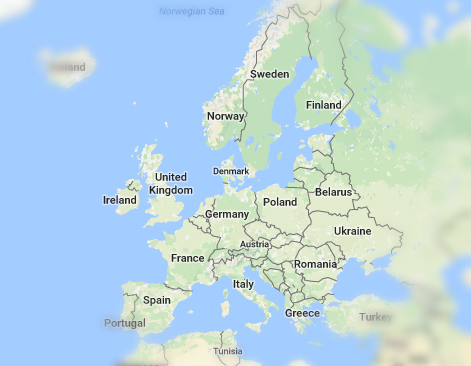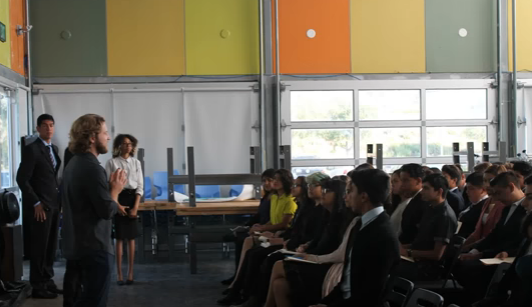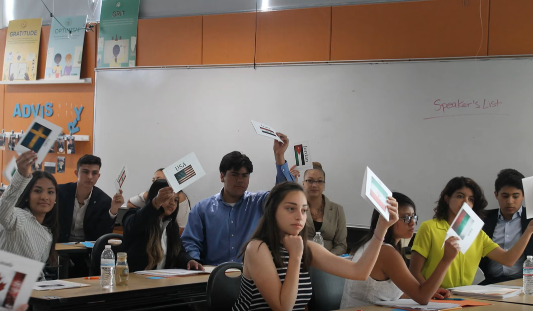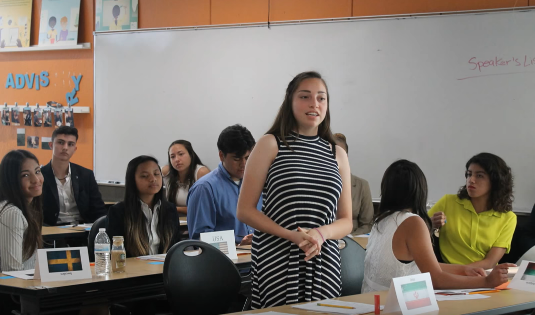INTRODUCTION
Model United Nations was a grade involved project. All the tenth grade students worked on this project to deliver a final product of a simulation which was based off of the United Nations. The topic for the project was something very important right now; The Syrian Refugee Crisis. This is cause of the Syrian Civil War, where millions of refugees are escaping war and persecution against their families, religion, and their own beliefs. We were given countries affiliated with the crisis, and we were given the task of researching all about the Syrian refugee crisis and how our country stands on it. I was given the country Denmark, a country in which refugees make their journey through to get to Sweden. Some stop at Germany and some cross over Denmark.
DESCRIPTION OF MY COUNTRY
|
Denmark is known as one of the most richest countries in the world. They stand at 39 of all the other countries, their GDP at 3 trillion since 2016. Denmark is located in Europe, over Germany and under Norway and Sweden. According to one of the sources I used, World Atlas, "Denmark has a constitutional monarchy, in which the monarch is the head of state and cabinet is the primary executive organ." Currently, Denmark does NOT accept refugees and if they were to apply for the refugee status in Denmark, it would take 3 years for it to be accepted and granted access. Most civilians in Denmark are actually "trafficking" refugees from the border to the bridge between Denmark and Sweden. The reactions to the refugee crisis within Denmark has been made clear that it concerns our citizens and they are not happy to have them in their country. Some have spoken out about it and talked to the reporters about how the refugees have shifted their culture and daily habits, since they have to get used to the Denmark culture and language as well.
|
MOST USEFUL ARTICLE
|
My most useful articles were from: 1) The New York Times, 2) The Washington Post, 3) The Huffington Post, 4) The Nation, and 5) The Atlantic.
They were useful because they provided information on why Denmark exactly closed it's doors, why it wasn't accepting refugees, and how it impacted their culture in Denmark. It taught me a lot because from my skills in "baloney detection" with our previous project, I had known whether or not to trust a website and whether it was useful to the investigation. During this process, I figured out a lot about my country, where it stands in the refugee crisis, and how it has changed their approach to the humanitarian crisis. |
MY POSITION PAPER
|
Between the three drafts we did for our position paper, I added a lot of information that had been useful for me to learn about where Denmark has it's place in the refugee crisis. My position paper changed from being a one page paper to being 2 pages with various "works cited." My other classmates who also had Denmark as a country in their class, had critiqued my position paper and said that it ccontained a lot of good information and that I needed to change a couple things. I noticed a piece of critique came up the most frequently was "Try to change the point of view to match Denmark. Make sure not to stick to it's own bias." This was helpful because I knew then and there what I needed to change and how my position paper looked to my classmates. This meant that I needed to alter what bias I had and what I was trying to tell the rest of my peers in my committee who might want to ally with me during Model United Nations. I am really proud of how far it came along and how I was able to add a lot of information into my position paper. I'm proud of the finished product and I would have wanted to do more research on why my country didn't want to align with certain countries and why it was important for Denmark to pursue it's own path in whether they should let refugees in or not.
|
Your browser does not support viewing this document. Click here to download the document.
|
MY OPENING SPEECH
|
For my opening speech, I tried to use some information that I had on my position paper to create something that would attract other's attention. It would help me better align with countries. For this, I was actually doing rough drafts on it and in the end, it actually took me about 36 seconds to read it to my committee. I really would have wanted to put more work into it because I felt like I could have done better with my writing if I actually put my mind into changing it when I had critique from my peers.
|
Your browser does not support viewing this document. Click here to download the document.
|
EXPERIENCE ON THE CONFERENCE
In general, I am really proud of our committee because we were really productive during our conference. There were a couple times where the conversation died down and we weren't really productive, but that sometimes happened after lunch since we didn't have as much energy as when we started. I was getting up a lot for my friend who was next to me because she doesn't really talk at school in front of anyone. So I usually spoke for Bulgaria, and sometimes, for Denmark. I felt like if I had more research for Denmark and I would have been more flexible with what I was looking for. I wished that I could have opened up myself to other questions for research, for example, I could have researched on whether or not Denmark wanted ISIS gone, etc. Some golden moments in my committee was when we were talking about why we should get rid of ISIS and a country mentioned Humanitarian Crisis and everyone in the committee would go into a frenzy. They would talk about why it wasn't important and how we should get rid of ISIS first and then deal with the Humanitarian Crisis. I found it really interested because you could tell how many countries didn't care about people and wanted to eliminate a threat first, even if it meant that some citizens would be in harm.




